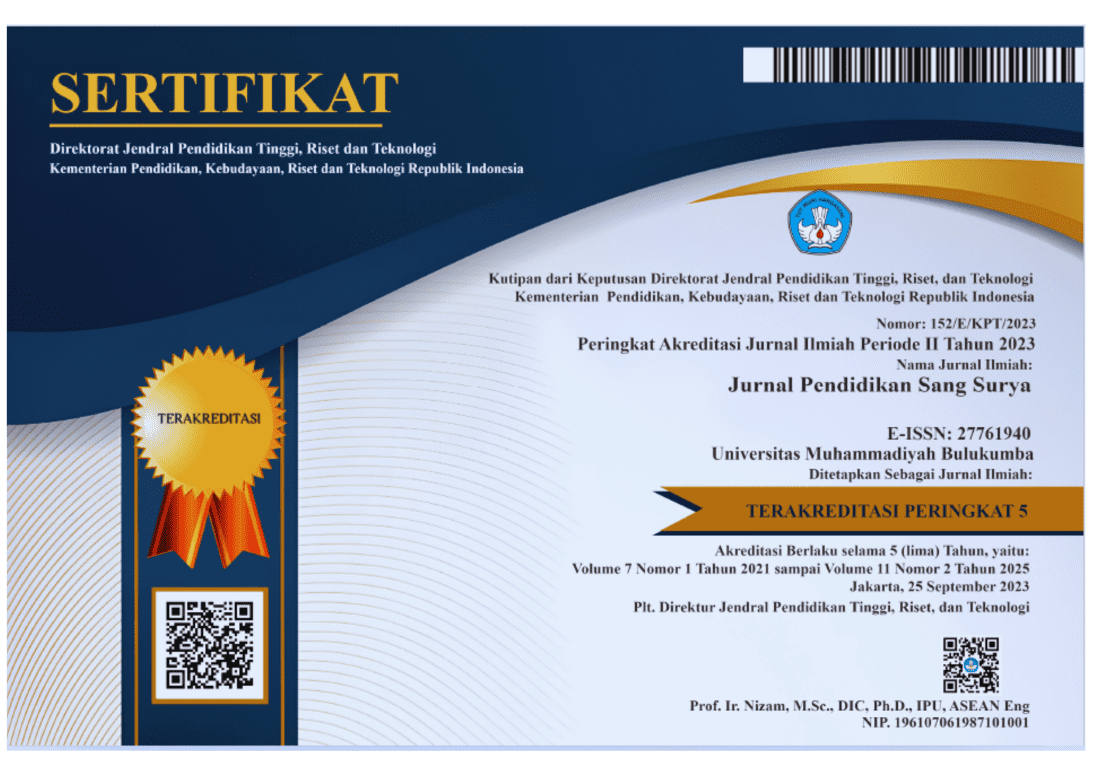ANALISIS KEBENARAN BERDASARKAN COHERENCE THEORY PADA IMPLEMENTASI KURIKULUM MERDEKA SEKOLAH DASAR
DOI:
https://doi.org/10.56959/jpss.v10i2.252Keywords:
Truth, Coherence Theory, Independent Curriculum, and Elementary School.Abstract
The independent curriculum is currently a topic of discussion among learning units. Where educational units complain that the implementation process is difficult for educational units in Indonesia to carry out. This means that the Independent Curriculum is not required to be implemented by educational units, one of which is elementary school education. However, implementation is based on the capabilities and resource readiness of each school. This research was conducted using a descriptive qualitative method with a literature review type of research. Based on the results of the researcher's study, the research results show that there is coherence or consistency in the provisions made by the Ministry of Education and Culture, Research and Technology regarding the Implementation of the Independent Curriculum. Where, in the implementation which provides guidance to elementary school units for implementing the curriculum, basic education units have difficulty implementing it. So, at the same time there is a provision that the Independent Curriculum is not required to be implemented in each school. However, the implementation of the Independent Curriculum is carried out according to the readiness and capabilities of each school, in fact these provisions are coherent or consistent in the implementation process.
Downloads
References
Aprima, D., & Sari, S. (2022). Analisis Penerapan Pembelajaran Berdiferensiasi Dalam Implementasi Kurikulum Merdeka Pada Pelajaran Matematika SD. Cendikia: Media Jurnal Ilmiah Pendidikan, 13(1), 95-101.
Ardianti, Y., & Amalia, N. (2022). Kurikulum Merdeka: Pemaknaan Merdeka Dalam Perencanaan Pembelajaran Di Sekolah Dasar. Jurnal Penelitian Dan Pengembangan Pendidikan, 6(3), 399-407.
Audrian, D. (2022). Teori Kebenaran: Koherensi, Korespondensi, Pragmatisme Dan Huduri. Seroja: Jurnal Pendidikan, 1(2), 56-62.
Bakhtiar, A. (2012). Filsafat Ilmu: Edisi Revisi. Jakarta: Raja Grafindo Persada.
Dewi, M. M. (2022). Teori Kebenaran Berdasarkan Perspektif Filsafat dan Sains Islam. Journal of Social Research, 1(4), 254-260.
Lombokpost. (2023). Penerapan Kurikulum Merdeka di Sekolah Masih Lemah. Diakses melalui https://lombokpost.jawapos.com/pendidikan/1502795830/penerapan-kurikulum-merdeka-di-sekolah-masih-lemah pada 29 Mei 2024.
Lubis, A. Y. (2015). Filsafat Ilmu: Klasik Hingga Kontemporer. Jakarta: Rajawali Press.
Moleong, Lexy J., (2019). Metode Penelitian Kualitatif. Bandung : PT. Remaja Rosdakarya.
Sugiyono. (2019). Metodelogi Penelitian Kuantitatif dan Kualitatif Dan R&D. Bandung: ALFABETA.
Sunarni, S., & Karyono, H. (2023). Persepsi Guru Terhadap Implementasi Kurikulum Merdeka Belajar di Sekolah Dasar. Journal on Education, 5(2), 1613-1620.
Suriasumantri, J. S. (2020). Filsafat Ilmu:Sebuah Pengantar Populer. Jakarta:Pustaka Sinar Harapan.
Widyastuti, R. (2021, September). Relevansi Pemikiran Ki Hajar Dewantara Dengan Konsep Merdeka Belajar. In Prosiding Seminar Nasional Manajemen Pendidikan (Vol. 2, No. 1, pp. 1068-1077).
Wuwur, E. S. P. O. (2023). Problematika Implementasi Kurikulum Merdeka di Sekolah Dasar. SOKO GURU: Jurnal Ilmu Pendidikan, 3(1), 1-9.
Yusdinar, P., & Manik, Y. M. (2023). Pengaruh Ekstrakurikuler Pramuka terhadap Pembentukan Karakter Siswa. Edu Cendikia: Jurnal Ilmiah Kependidikan, 3(01), 183-190.
Downloads
Published
How to Cite
Issue
Section
License
Copyright (c) 2024 Jurnal Pendidikan Sang Surya

This work is licensed under a Creative Commons Attribution-ShareAlike 4.0 International License.
Jurnal Pendidikan Sang Surya dilisensikan di bawah Lisensi Internasional Creative Commons Attribution-NonCommercial-ShareAlike 4.0
Artikel di Jurnal Pendidikan Sang Surya adalah artikel Akses Terbuka yang diterbitkan di bawah Lisensi Creative Commons CC BY-NC-SA Lisensi ini mengizinkan penggunaan, distribusi, dan reproduksi dalam media apa pun untuk tujuan non-komersial saja, asalkan karya dan sumber aslinya dikutip dengan benar. Setiap turunan dari aslinya harus didistribusikan di bawah lisensi yang sama dengan aslinya.



